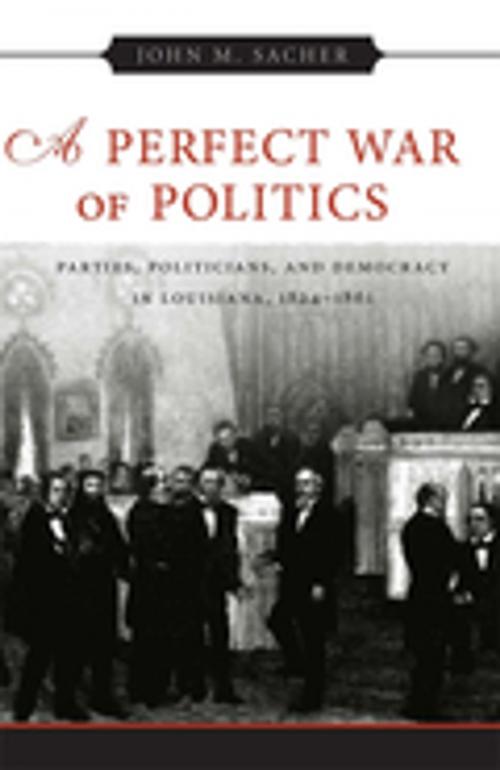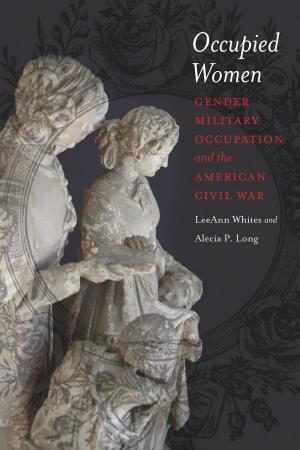A Perfect War of Politics
Parties, Politicians, and Democracy in Louisiana, 1824–1861
Nonfiction, History, Americas, United States, State & Local| Author: | John M. Sacher | ISBN: | 9780807152423 |
| Publisher: | LSU Press | Publication: | April 1, 2003 |
| Imprint: | LSU Press | Language: | English |
| Author: | John M. Sacher |
| ISBN: | 9780807152423 |
| Publisher: | LSU Press |
| Publication: | April 1, 2003 |
| Imprint: | LSU Press |
| Language: | English |
Though antebellum Louisiana shared the rest of the South's commitment to slavery and cotton, the presence of a substantial sugarcane industry, large Creole and Catholic populations, numerous foreign and northern immigrants, and the immense city of New Orleans made it perhaps the most unsouthern of southern states. John M. Sacher's A Perfect War of Politics explores why Louisiana joined its neighbors in seceding from the Union in early 1861 and offers the first comprehensive study of the state's antebellum political parties and their interaction with the electorate. Sacher shows that, although civic participation expanded beyond the elite from 1824 to 1861, Louisiana remained a "white men's democracy." Ultimately, he explains, an obsession with defending white men's liberty led Louisiana's politicians to support secession. Sacher's welcome study provides a fresh, grass-roots perspective on the political causes of the Civil War and confirms the dominant role regional politics played in antebellum Louisiana.
Though antebellum Louisiana shared the rest of the South's commitment to slavery and cotton, the presence of a substantial sugarcane industry, large Creole and Catholic populations, numerous foreign and northern immigrants, and the immense city of New Orleans made it perhaps the most unsouthern of southern states. John M. Sacher's A Perfect War of Politics explores why Louisiana joined its neighbors in seceding from the Union in early 1861 and offers the first comprehensive study of the state's antebellum political parties and their interaction with the electorate. Sacher shows that, although civic participation expanded beyond the elite from 1824 to 1861, Louisiana remained a "white men's democracy." Ultimately, he explains, an obsession with defending white men's liberty led Louisiana's politicians to support secession. Sacher's welcome study provides a fresh, grass-roots perspective on the political causes of the Civil War and confirms the dominant role regional politics played in antebellum Louisiana.















